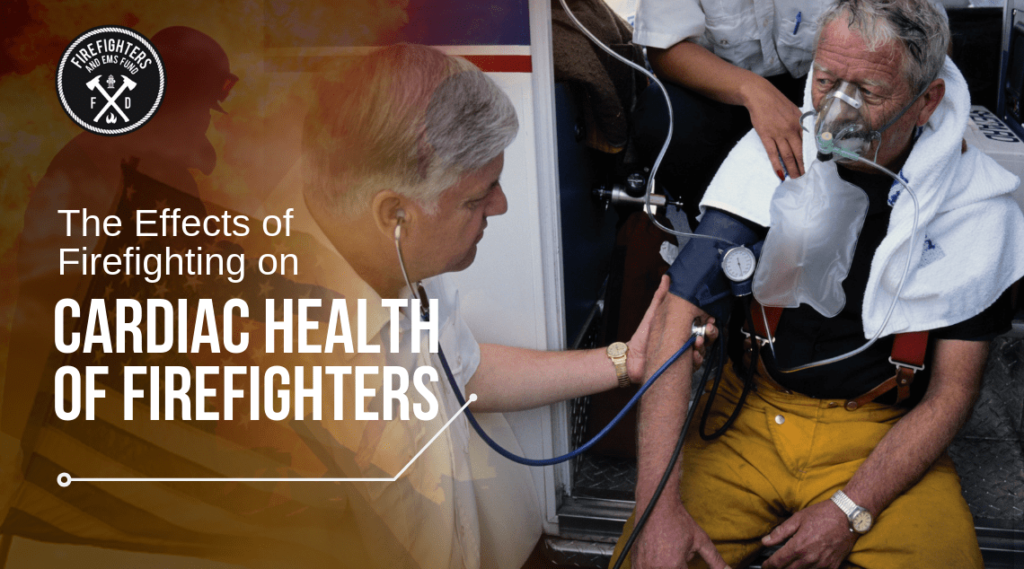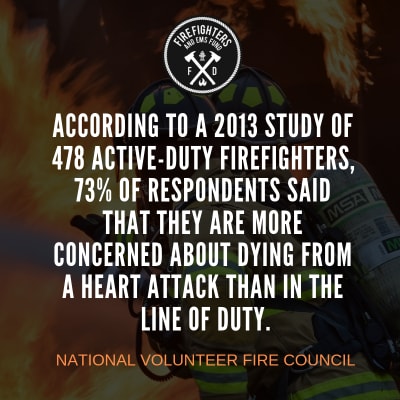We recently covered the sobering statistics of firefighter line of duty deaths in 2017. On total, 91 firefighters died in the line of duty in 2017, according to the U.S. Fire Administration’s annual report. These statistics illustrated a disturbing trend. Of the 91 firefighters killed in 2017, more than half died of heart attacks while on the job. The obvious question to ask is how to cut firefighter heart attacks?
 Heart attacks are a top concern of firefighters
Heart attacks are a top concern of firefighters
According to a 2013 study of 478 active-duty firefighters conducted by National Volunteer Fire Council, 73% of respondents said that they are more concerned about dying from a heart attack than in the line of duty. The study also found that 78% of respondents know of a fellow firefighter who died of a heart attack. Clearly, cardiac health is at the forefront of concerns for firefighters. But why do so many firefighters die of heart attacks?
Extreme heat and physical strains linked to heart attacks
Some research suggests that extreme heat, paired with the physical strains of the job, contribute directly to firefighter heart attacks. A 2017 study conducted in the United Kingdom sought to analyze the effect of heat and physical strain on blood pressure. Researchers staged a mock fire rescue where firefighters were exposed to temperatures of 752 degrees fahrenheit. The results found extreme strain on heart muscles, which suggests that the nature of the job directly contributes to firefighter heart attacks. The study also found that extreme temperatures and physical exertion lead to higher risks of blood clotting.
While the danger of extreme heat and physical exertion will always be present for firefighters, researchers say that that physical fitness training, as well as active cooling and rehydration could help mitigate the risks associated with the job. Firefighters can also benefit from ongoing cardiovascular risk assessments to monitor the status of their cardiac health.
Local governments also have a part to play in lessening the risk of firefighter heart attacks. Firefighters require the best equipment possible given the extreme dangers of the job. Proper funding for up-to-date equipment can only help in the fight against firefighter heart attacks.


 Heart attacks are a top concern of firefighters
Heart attacks are a top concern of firefighters





